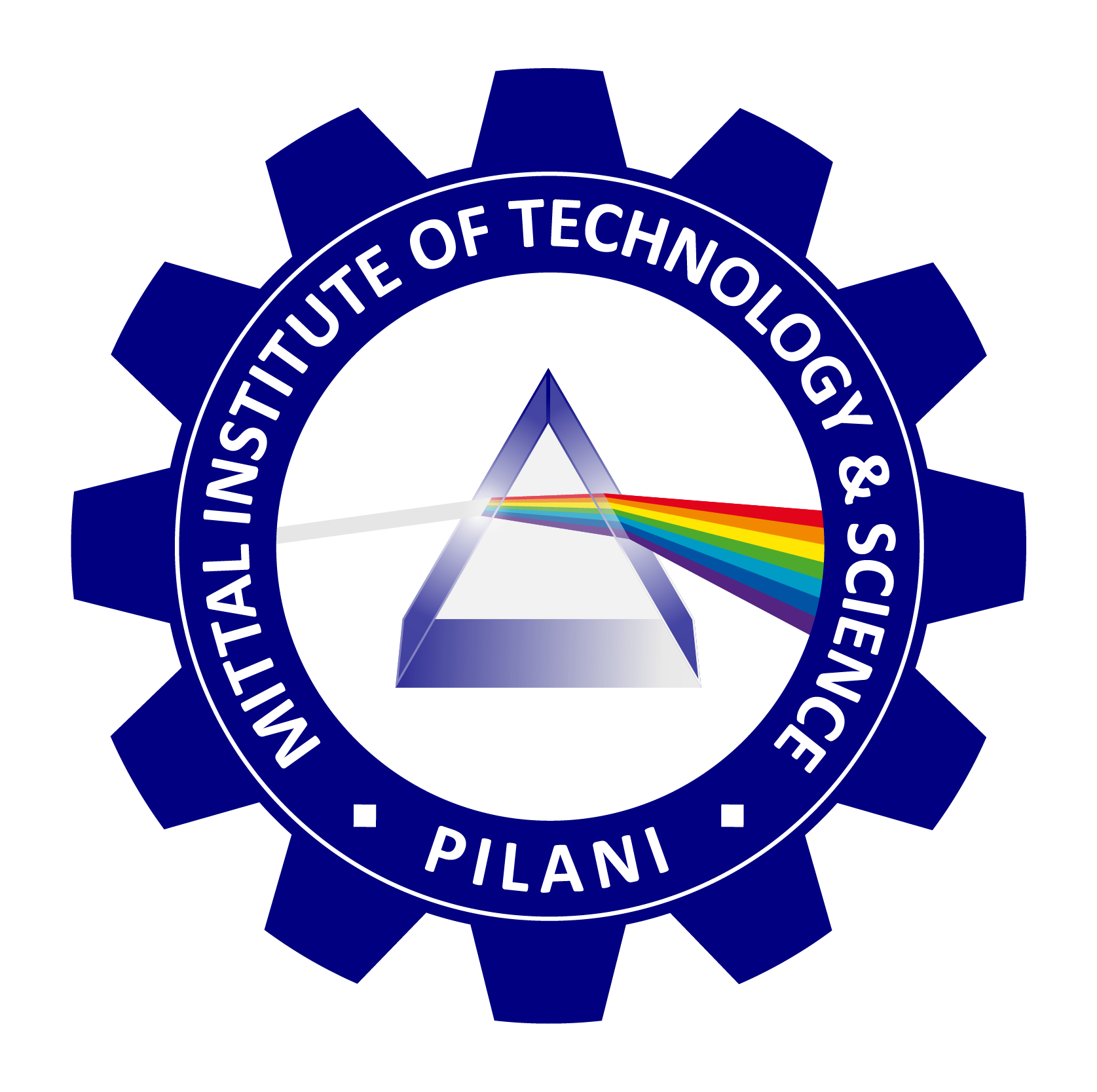
MITTAL INSTITUTE OF TECHNOLOGY & SCIENCE, PILANI
Department of Medical Science and Advanced Research in Life Sciences using Artificial Intelligence and Computer Science
Medical Science Education and the Role of Artificial Intelligence in Medical Research
Medical science education has long been one of the most rigorous and important fields of study, aimed at training future doctors, researchers, and healthcare professionals to enhance human health and well-being. Traditionally, medical education has focused on foundational biological and anatomical sciences, clinical practice, and medical ethics. However, with rapid advancements in technology, particularly in artificial intelligence (AI) and computer science, the field of medical research is undergoing a transformative shift. These technologies are poised to play an increasingly central role in how medical students and professionals approach research, diagnosis, and treatment.
Medical Science Education: A Foundation in Health
The core of medical education remains focused on understanding the human body, its diseases, and the interventions needed to maintain or restore health. Medical students undergo extensive training that spans subjects such as anatomy, physiology, pharmacology, pathology, and clinical medicine. Along with this, they receive practical experience through internships and residencies, which equip them to diagnose and treat patients.
In addition to these traditional domains, medical education is evolving to integrate new technologies and interdisciplinary approaches, especially in the areas of research and diagnostics. As medical science advances, the emphasis on continual learning and the adoption of new techniques have become critical. Today, the intersection of AI and computer science with medicine is reshaping the entire healthcare landscape, providing students with novel opportunities to address complex medical challenges.
The Intersection of Medical Research and AI
Artificial intelligence and computer science have dramatically expanded the possibilities of medical research. Traditionally, medical research involved labor-intensive processes—whether it was conducting clinical trials, analyzing vast amounts of patient data, or studying the molecular structures of pathogens. With the integration of AI, however, many of these tasks can now be automated, enhanced, and scaled.
Some of the key areas where AI and computer science are revolutionizing medical research include:
- Data Analysis and Predictive Modeling: Medical research generates vast amounts of data from clinical trials, patient records, genomic studies, and more. AI-powered tools can process this data at a speed and scale that was previously unimaginable. Machine learning algorithms are particularly useful for identifying patterns and correlations within large datasets, which can lead to new insights into disease mechanisms, drug efficacy, and patient outcomes. Predictive modeling also allows researchers to anticipate the course of diseases and personalize treatments based on individual patient data.
- Drug Discovery: Developing new drugs is an expensive and time-consuming process. AI is helping to streamline this by analyzing molecular structures and predicting how they might interact with biological systems. By using computational models to simulate the effects of drugs, researchers can identify promising compounds faster, reducing the need for time-consuming laboratory experiments. AI can also help repurpose existing drugs by finding new applications for them, thus accelerating the drug development process.
- Genomic Research: The advent of AI in genomics has allowed researchers to interpret vast amounts of genetic data quickly. With the help of machine learning, scientists can analyze complex genetic mutations, identify disease-causing genes, and better understand how genetic factors influence patient responses to different treatments. This opens the door to personalized medicine, where treatment plans are tailored to the genetic profile of individual patients.
- Medical Imaging and Diagnostics: AI is playing a critical role in analyzing medical images such as X-rays, CT scans, and MRIs. Algorithms can be trained to detect abnormalities such as tumors, fractures, or lesions more accurately and quickly than human radiologists in some cases. AI-powered diagnostic tools are also being developed to help clinicians interpret lab results and other diagnostic data. This not only improves the accuracy of diagnoses but also reduces the workload on healthcare professionals.
- Natural Language Processing (NLP) in Medical Research: Medical research papers, patient records, and clinical notes are often unstructured and text-heavy. AI-driven natural language processing (NLP) techniques are being used to extract meaningful insights from these documents. NLP can help medical researchers sift through large bodies of scientific literature, identify relevant studies, and highlight potential connections between different research findings. This can be crucial in evidence-based medical practice and decision-making.
- Clinical Decision Support: AI has the potential to revolutionize how healthcare professionals make clinical decisions. By integrating patient data with AI algorithms, clinical decision support systems can recommend personalized treatment options based on historical data and real-time analysis. This ensures that patients receive the most effective treatments, reduces medical errors, and improves overall healthcare quality.
The Role of AI and Computer Science in Medical Education
Given the significant impact that AI and computer science are having on medical research, it is vital that medical education adapts accordingly. Future doctors, researchers, and healthcare professionals need to be proficient not only in biological and clinical sciences but also in computational technologies that drive modern medical research.
Here are some ways in which AI and computer science are being integrated into medical education:
- Curriculum Innovation: Many medical schools are updating their curricula to include courses on AI, machine learning, data science, and bioinformatics. Medical students are being introduced to the principles of these technologies so they can better understand how AI tools can aid in diagnostics, patient care, and research. Additionally, interdisciplinary programs that combine medical science with computer science are becoming increasingly popular.
- AI-Assisted Learning Tools: AI-based tools are being developed to assist medical students in their learning process. For instance, AI-powered platforms can simulate patient interactions, allowing students to practice their diagnostic skills in a controlled environment. AI can also provide personalized feedback to students based on their performance in assessments, helping them identify areas where they need improvement.
- Collaboration with Computer Scientists: As medical research becomes more reliant on AI, collaboration between medical professionals and computer scientists is becoming essential. Medical education programs are emphasizing the importance of interdisciplinary collaboration, encouraging students to work alongside AI researchers, data scientists, and software engineers. This ensures that medical professionals are able to effectively use AI tools and technologies in their research and practice.
Challenges and Ethical Considerations
While AI holds enormous potential for advancing medical research and education, it is not without challenges. One major concern is the ethical implications of using AI in healthcare. Issues such as data privacy, algorithmic bias, and the potential for AI to replace human judgment in critical medical decisions must be carefully considered. Medical education must address these ethical challenges, ensuring that future healthcare professionals are equipped to use AI responsibly and ethically.
Moreover, there is a need for transparency in AI models. Medical students and professionals must understand the underlying algorithms and limitations of AI tools to avoid over-reliance on technology. Education must focus on integrating AI as a supportive tool rather than a replacement for human expertise.
The fusion of medical science education and AI-driven research is creating exciting opportunities for the future of healthcare. As AI and computer science continue to advance, they will undoubtedly play an even greater role in shaping how medical professionals approach patient care and research. Medical students of today must be prepared to harness these technologies, not only to enhance their research capabilities but also to provide more effective, personalized care to their patients. By integrating AI and computer science into medical education, we are setting the stage for a future where healthcare is smarter, more efficient, and more precise than ever before.

Professor Rakesh Mittal
Computer Science
Director, Mittal Institute of Technology & Science, Pilani, India and Clearwater, Florida, USA
